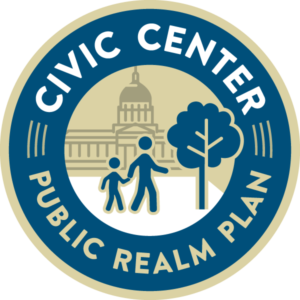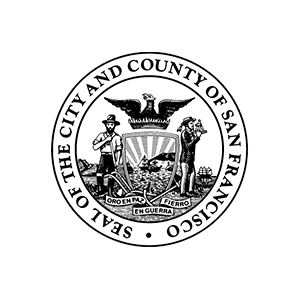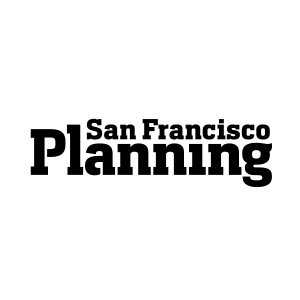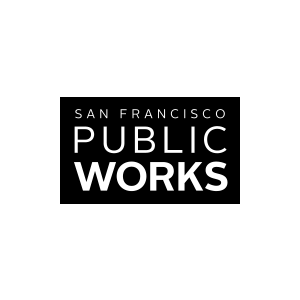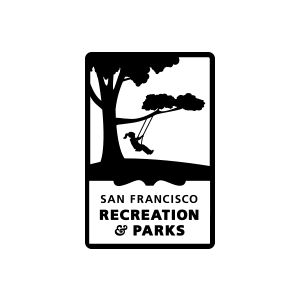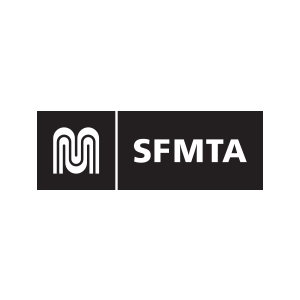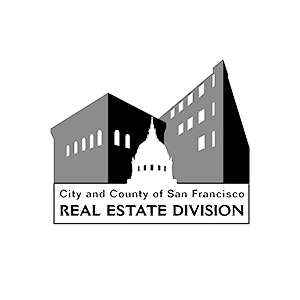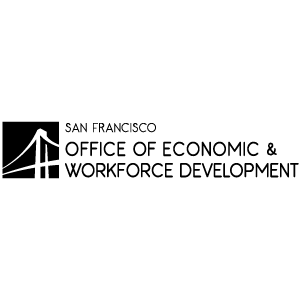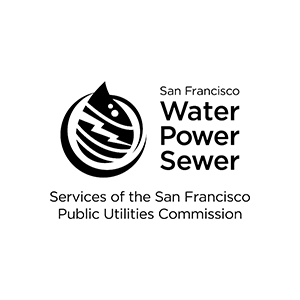Annie works at Lava Mae, a non-profit mobile hygiene program that provides more than four thousand individuals experiencing homelessness with access to showers and basic hygiene. Every Tuesday, the bright blue Lava Mae trailer is parked on Fulton Street just outside the library. You can see a line of chairs filled with people patiently waiting to take a shower and receive free hygiene kits. Annie’s smile made it easy to request an interview.
“Our brand is called ‘radical hospitality’. My founder, she’s an amazing woman who was walking in the streets of San Francisco and this woman told her ‘I don’t feel clean’ and my boss was compelled to do something about it. She was able to get the funding together to get this thing up and moving. So now we have three trailers that are active and we go to different parts of San Francisco, we set up and we provide showers all day. We have a generator for lights and the fans and we have propane for the heat for the water. Our water sometimes come from meters and they sometimes come from the library today is donating their water to us. The hygiene kits are donated, the shirts are donated, the socks are donated. We can provide the showers, the towels, and the cleaning supplies to clean in between every shower. But everything else we rely on donation. We do pretty good though. We have hygiene kits almost every single day. But you know, we had two hundred hygiene kits donated on Wednesday last week and we’re already done. We have four left.”
Throughout the interview, Annie stopped to greet people, answer questions, and ask them if they needed hygiene kits.
“I tell my sweetheart at home that I hug a lot of people; I hug a lot of homeless people because not only do I know that they shower every day but because honestly we’re the only people they talk to all day that treats them with respect and dignity.”
“Most people see a homeless person and they would jump across the street or they feel like, ‘Oh man, we shouldn’t help them because they’re just gonna buy beer or drugs’ but we don’t care what you buy. We’re not giving you money, we’re here giving you a shower. We’re here to make you feel better. And a lot of people come here because they really, really are trying their best today. They want to go out there, they want to get a job. Even if it’s just panhandling, they want to do it nicely so what we can guarantee everybody every day is a towel and a shower.”
Lava Mae operates in the Tenderloin four days a week and provides showers on Fulton Street outside of the library every Tuesday. They also operate at Glide Church and St. Anthony’s regularly. The Civic Center is one of their locations because it’s a central hub that sees many different people on a daily basis.
“Because look at this. This is amazing. You have people, so many tourists come in these buses and people over here with the Off the Grid trucks. Everyone works around here. People come to San Francisco just to see City Hall, there’s so many people. We have a lot of exposure here, not just for our brand and for advertising but we have exposure here just for people to see what we’re doing and people who are in need. When I pulled up this morning at 8:30, there was already thirty-two people signed up to take a shower. We have to turn away a lot of people because of our time constraint.”
“I love this space. Tuesdays are my favorite days because out of the forty showers that we gave today, I knew probably about twenty-five people. And everybody else, they’re new and it’s every Tuesday. [At] St. Anthony’s, out of the forty showers I know about thirty-eight, maybe two new people come…but here, it’s new people constantly because we’re in the central hub. People are walking by. People are going to the library, people are going to City Hall, people are going up to Van Ness, people are looking for the freeway.”
Annie lives in Hayward and spends almost one hundred dollars every week just to get to the City to work for Lava Mae.
“I love this. I’ve always been in community work. Before this I was an undertaker for 10 years. And before that I was always doing volunteer work with my grandpa, like bingo halls with old people or convalescent homes and elder care or making food at church. I’ve always been in community work so this means so much to me. I didn’t even realize Lava Mae existed and when I did, I was blown away. I never for a million years thought I would work here and I just feel privileged, honestly. And we don’t judge, man. I don’t care if you walk up and you’re stoned or you’re drunk. I don’t care. Everyone is so damn grateful and there’s bad days, absolutely…especially towards the end of the month when people don’t have much aid, but everyone’s so easy to talk to and just super grateful and humbled. And I love it. And everyone loves to help. That’s Paul. He’s a guest and he’s here all day. He was like, ‘I got nothing to do and I’d love to help you clean so he went on our website and filled out all the proper paperwork to volunteer and now he’s here volunteering all the time.”
Prior to working for Lava Mae, Annie came to the Civic Center and Tenderloin often to hang out with friends and go to bars and restaurants.
“I love the Tenderloin, I love Polk Street. So I would come out here all the time for fun. I’d walk up Polk, go to restaurants, you know, just like night-life stuff.”
“Personally, I never felt threatened here. And you sort of learn street mannerism you know? I don’t feel like this is a bad neighborhood. I feel like there’s definitely drugs here and there’s definitely hostility but no violence. People have their turfs and you just learn where not to go and who not to look in the eye and stuff like that but I’m not scared to be here. People are friendly.”
Annie talked about the aesthetics of the Civic Center area, how beautiful City Hall is but also pointed out some of the less appealing features of the area.
“It’s beautiful right? If you look at it, it looks beautiful but you look down, there’s a lot of trash and there’s needles and people dump their garbage. But from UN to City Hall and Fulton Street? This is top, this is taken care of. The [Downtown] Streets Team takes care of this area. But if you go up a block, it’s a different story.”
Despite some of the less pleasant things you might see in the Civic Center, Annie believes the public spaces are welcoming.
“I just think you have to be prepared for it. It’s jarring if you’re not used to being around homeless people. There’s a lot of mental illness out here, a lot of displacement, so if you’re not familiar with it, this can be jarring, it can be a little intimidating and confusing and sad and depressing but I also think it can be perfectly fine. Everyone’s fine, I’m not at all threatened here.”
Annie thinks that a community-centered effort can help improve the area.
“I think if they could have more of a presence of some type of authority that isn’t a uniformed policeman.; people who are trained in de-escalation to break up fights…to put more regulation here because it’s the Wild West out here, you know? A little more of an authoritative presence I think would be helpful but they’d have to be one of us, right? They’d have to be one of us. A uniformed officer just sort of pushes people away. Just someone that’s gonna clean up, someone that’s gonna de-escalate, someone that’s gonna regulate. I think that would be helpful.”
Annie holds a nuanced perspective of the social issues that take place in the public spaces of Civic Center. She hopes that Lava Mae is helping in it’s own way.
“Honestly, this is all of our people. Someone asked me recently, ‘What’s the percentage of people with mental illness out here?’ And I don’t know. I can’t diagnose people but I think it’s a lot…way more than we think it is. I think that we all know someone who has mental illness whether it’s bipolar or depression or anxiety…to someone who has schizophrenia to someone who’s addicted to drugs to someone who’s depressed because they found out they have cancer and they don’t have medical coverage, that can throw you for a spin. Then there’s the aspect of homelessness, where you just don’t have enough. You have a job, you only make fifteen dollars an hour, and you rent a $3,500 apartment in the Tenderloin for a fifteen-dollar-an-hour job, and now you live in a tent and you’re a great neighbor. You shut down your tent every day, you pee in a bucket that you take to the toilet and dump every morning. You don’t do drugs, you don’t do any of that stuff, but you don’t get enough sleep and that causes you some strain and anguish and depression and it’s all a cycle. And with Lava Mae, I think we’re really trying to help. Whether you feel better for five minutes or you feel better for a whole week because you shower once a week and you can’t wait to see Lava Mae again on Tuesday or whatever it is.”
“People say all the time, ‘Why? Why is there so much homelessness? Why is there so much drug use? And why are you out here helping people?’ and my answer is always ‘I don’t want to know the answer. I don’t want to figure anyone out. I just want to help. It’s what I can do that can help.’ I don’t want to know why, I don’t care why. That’s really out of my jurisdiction…I think that what we do at Lava Mae is super helpful from the inside out, literally. Some people come as a couple and one person is screaming and berating their other person. And they get that fifteen minutes in there of pure silence and they get that warm water on their neck and on their face and on their head. I never rush anybody out…everyone gets their fifteen minutes but the truth of the matter is the last time they took a shower could have been two weeks ago, two months ago.”
Annie loves the Civic Center over other public spaces because it’s uniquely San Francisco, where people of all walks of life can come, feel welcomed, and receive services if they need them.
“I think there’s something comforting about Civic Center. I think that it’s San Francisco. You look at this and you think ‘San Francisco.’ You look at UN Plaza even and you think this is San Francisco. So people are comfortable here, they want to be here. ‘This is San Francisco’ means this is the image of San Francisco; this is the heart of San Francisco. This is where you would expect you would be taken care of in San Francisco. I heard something like the Tenderloin is a nine-block radius and there’s like sixteen different facilities that’ll help the homeless. And that’s Civic Center.”
“We do this thing here once a month called a Pop-Up Care Village…Project Homeless Connect is out here helping and we have eye doctors for glasses, we have people who just sit and listen and talk, we have music, we have dental, we have a needle exchange, we have food, we have coffee, we have books, we have a clothing store, we have haircuts and there’s all these people that come out here and they love it. The Civic Center is such a hub for everyone and anyone. Everyone knows where City Hall is and it’s a good reference point so all week long, we’re like ‘Go to City Hall on Tuesdays’ or ‘Go to the library on Tuesdays.’ So I think that this space means a lot to everybody. I think it’s a comforting space. And plus the library lets everyone in…so people come there for shelter to get out of the rain and there’s bathrooms and there’s a computer.”
For the last question of the interview, Annie was asked what surprised her most about the people she serves while working for Lava Mae.
“What I’ve learned is how much these people on the street take care of each other. Everyone helps each other. Everyone. And you don’t even have to be homeless, they just have giving in their hearts that they want to give to everybody. And it’s fascinating that these people are homeless. Whereas there’s people [who] in their lives that don’t give at all and they make tons of money and have nice houses and nice things. But these people have nothing; the little bit of things that they have, they’re sharing. Blows my mind.”
